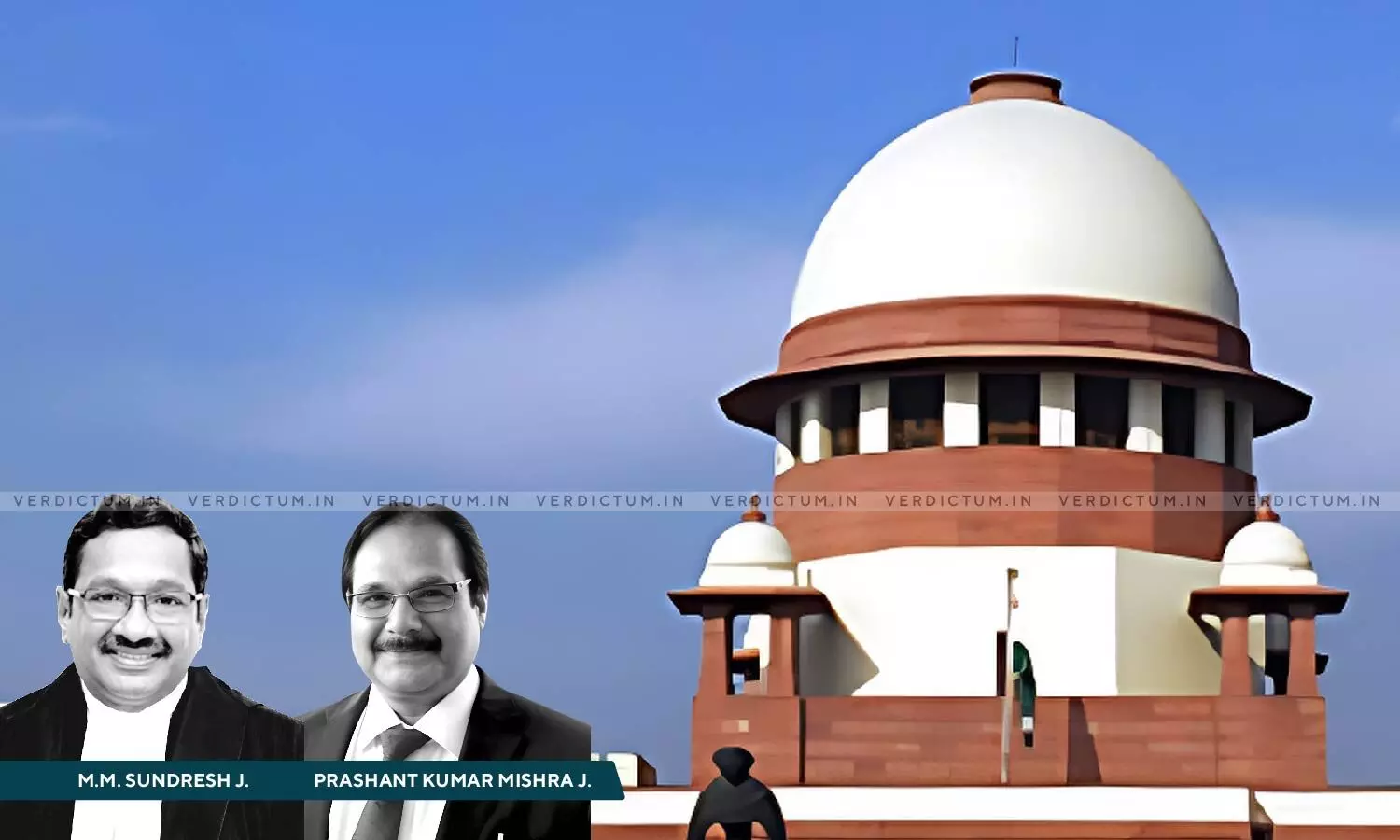
Adjudicating Forum Being Product Of Procedural Right Must Come Under Retrospective Operation When Amendment Is Introduced To Cure Defect: SC
 |
|The Supreme Court has held that an adjudicating forum being a product of procedural right must come under the retrospective operation when an amendment is introduced to cure a defect.
The Court was deciding a civil appeal filed against the judgment of the Telangana High Court whereby it dismissed the revision petition of the appellants and reversed the decision of the Executing Court by relying upon the case of Ramesh Gobindram (Dead) through LRs. v. Sugra Humayun Mirza Wakf (2010) 8 SCC 726.
The two-Judge Bench comprising Justice M.M. Sundresh and Justice Prashant Kumar Mishra observed, “On the question of the effect of removal of the basis of the judgment, once again, the distinction between a procedural and substantial law has to be kept in mind. An adjudicating forum being a product of a procedural right has to come under retrospective operation when an amendment is introduced to cure a defect which paved the way for a decision of the Court in holding otherwise.”
The Bench noted that the institution of a suit before a forum where an adjudication process is the same as the other, insofar as the rights and liabilities are concerned, has got no relevancy when subsequently either an act or amendment has been brought forth conferring the jurisdiction to some other forum.
Senior Advocates Abhishek Manu Singhvi and Huzefa Ahmadi appeared on behalf of the appellant while Senior Advocate Shyam Divan and Advocate K. Parameshwar appeared on behalf of the respondents.
In this case, a legal journey adopted by the appellant with periodical stoppages orchestrated in the process at behest of the respondents brought the lis back to the place where it started, forcing it to undertake a fresh guard by the impugned order. The appellant being the undisputed owner of the suit property executed a registered lease deed in favour of the second respondent and the first respondent i.e., a hotel company was represented by a person who was the son of the individual (since deceased) who represented the second respondent. The period of lease was for 33 year and the suit premises was sublet without permission by respondents. After the expiry of the lease by efflux of time, the appellant issued a legal notice requiring second respondent to hand over the vacant possession.
Being aggrieved by the response, the appellant filed a suit before the Wakf Tribunal seeking a decree for ejectment and recovery of possession, along with arrears of rent and damages. After a prolonged litigation, a decree was passed and no plea with respect to the jurisdiction of the Wakf Tribunal was raised, while the aborted attempt to raise a defense of oral lease was repelled. Not being satisfied with the decree passed, the respondents filed a revision petition before the High Court which was dismissed. However, after four years, at the instance of the respondents, an additional counter was filed but the objection raised was not found to be tenable by the Executing Court by dismissing the application filed under Section 47 of CPC. On a revision, the High Court reversed the decision of the Executing Court and the same was under challenge in the appeal.
The Supreme Court in view of the above facts said, “As a principle of law, the powers of the civil court, being plenary in nature, the onus lies on the party who contends that it lacks jurisdiction. However, this does not take away the duty of the civil court to check its own jurisdiction, more so when a specialized forum has come into being as a creature of a statute. Of course, there may be certain exceptions when fundamental principles governing common law, including the one pertaining to the principle of natural justice, stand violated.”
The Court further said that to deal with such an issue, one has to take into consideration the objective behind the enactment along with the provisions contained thereunder.
“On a proper analysis of the said decision, we have no hesitation in holding that the Wakf Tribunal has got sufficient jurisdiction to try every suit pertaining to either a Wakf or a Wakf property, notwithstanding the nature of relief concerned, except as mandated under the statute. … the issue for consideration is the forum to adjudicate. This principle is subject to the rider that it may not have an application when there is already a decree where a party has not raised the issue of jurisdiction at any point before”, held the Court.
The Court also observed that as per the amendment by way of the Act 27 of 2013, the jurisdiction now lies with the Wakf Tribunal and that the Act is certainly a procedural amendment and therefore, has to be applied retrospectively in the context of change of forum and jurisdictional provisions.
Accordingly, the Apex Court allowed the appeal, set aside the order of the High Court, and restored the one passed by the Executing Court.
Cause Title- Mumtaz Yarud Dowla Wakf v. M/s. Badam Balakrishna Hotel Pvt. Ltd. & Ors. (Neutral Citation: 2023 INSC 949)